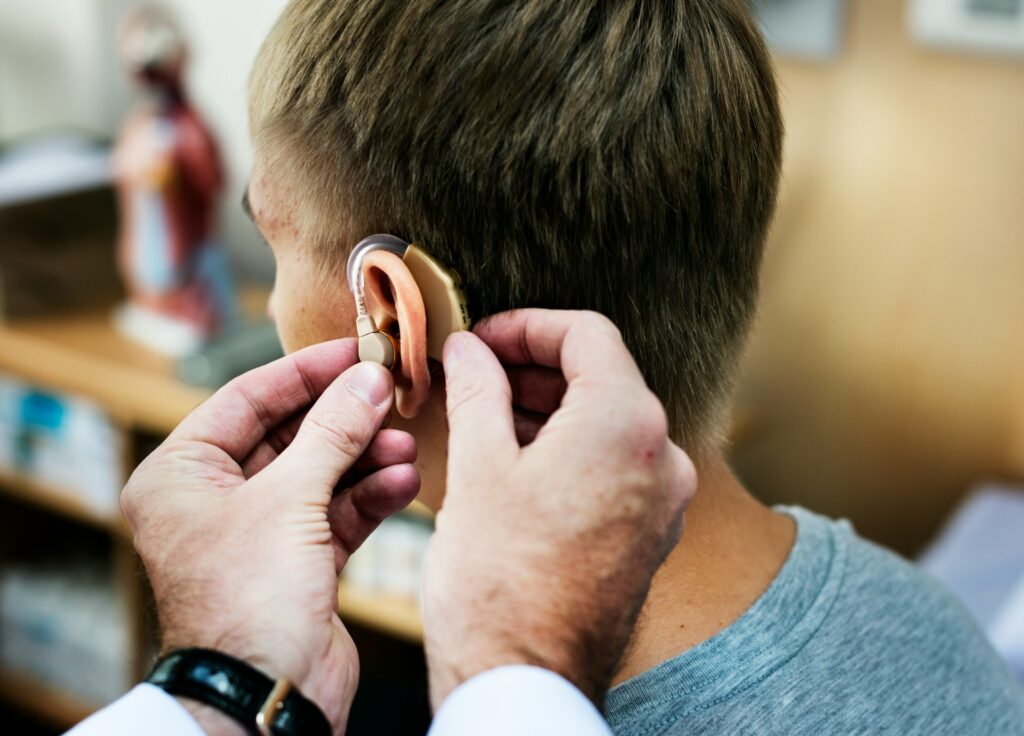If your child has been diagnosed with hearing loss, you may feel overwhelmed and uncertain about what to do next. But don’t worry – you are not alone.
There are many resources and support systems available to help you and your child navigate this new journey. One of the most important things you can do is to educate yourself about hearing loss and its effects on children.
The Importance of Early Intervention in Children With Hearing Loss
Early intervention is critical for children with hearing loss. According to the National Institute on Deafness and Other Communication Disorders (NIDCD), early intervention can improve communication skills, speech, and language development, social skills, and academic achievement in children with hearing loss.
Early intervention services may include:
- Hearing aids or cochlear implants
- Auditory-verbal therapy
- Speech therapy
- Occupational therapy
- Parent education and support
To receive early intervention services, your child must be diagnosed with hearing loss by a certified audiologist.
If you suspect that your child has hearing loss, you should schedule an appointment with an audiologist as soon as possible.
Tips for Helping Children With Hearing Loss Listen and Learn
If you are a parent of a child with hearing loss, you know that parenting comes with a unique set of challenges.
From finding the right education and support services to communicating with your child’s teachers and medical professionals, there is a lot to juggle.
If you have a child with hearing loss, you may be wondering how you can help them learn to listen and talk.
Here are some suggestions:
1. Talk to Your Child Often
Make sure to face your child when you talk, and use facial expressions and gestures to help communicate your message.
2. Check Their Hearing Equipment Regularly
If your child is wearing hearing aids or cochlear implants, ensure they are turned on and working properly.
3. Simplify Your Speech
Use short, simple sentences and avoid using jargon.
4. Repeat Words and Phrases
If your child doesn’t seem to understand what you’re saying, repeat the words or phrases more slowly and clearly.
5. Write Things Down
If your child is having difficulty understanding you, try writing down keywords or phrases.
6. Use Visual Aids
In addition to writing things down, you can also use pictures or other visual aids to help communicate your message.
7. Seek Professional Help
If you’re having difficulty communicating with your child, seek out professional help from a speech-language pathologist or other specialist.
8. Teach Your Child How to Advocate for Themselves
As your child grows up, it’s important to teach them how to advocate for themselves. Encourage your child to speak up when they need help or have questions.
You can also help your child learn about their condition and how to manage it. This will help them feel more confident and better able to advocate for themselves as they get older.
Conclusion
Helping children with hearing loss to listen and learn can be a difficult and challenging task. However, with the right support and resources, it is possible for these children to develop their listening and learning skills. With patience and guidance, children with hearing loss can learn to communicate effectively and lead fulfilling lives.
Country Hearing Care offers various hearing services and solutions, from hearing tests to hearing aids and more, to help improve everyone’s hearing. If you are looking for hearing aids to address your tinnitus, consult with us today!










